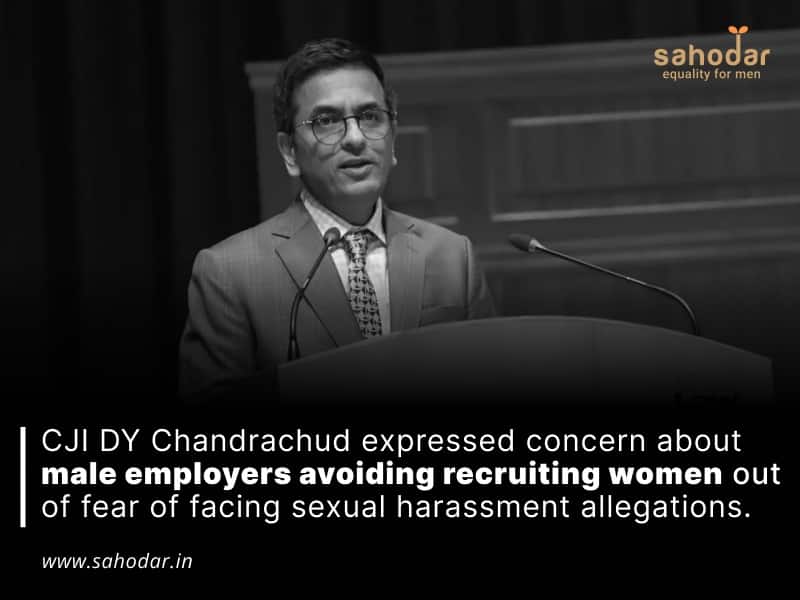During an event to inaugurate new court buildings in Madurai and Mayiladuthurai, Chief Justice of India Dr. DY Chandrachud brought attention to the low representation of women in the legal profession. He noted that stereotypes against women often hindered their recruitment and cited Tamil Nadu as an example, where there were only 5,000 female enrolments for every 50,000 male enrolments. The CJI pointed out that this trend was consistent across the country.
Chief Justice Chandrachud identified pre-existing stereotypes as one of the reasons for the underrepresentation of women in law chambers. He noted that such stereotypes led to the belief that women would not be able to work long hours due to their family responsibilities. The CJI emphasized that childbearing and childcare should not be used as a basis for denying women opportunities, as these were personal choices that should not result in punishment. He also pointed out that men could also choose to be involved in childcare and family care, and that society should not force such responsibilities solely on women. It was our collective duty, he emphasized, to provide institutional support to women who wished to balance their family and career responsibilities.
The Chief Justice of India, Dr. DY Chandrachud, suggested establishing creche facilities inside court complexes across India as a means of providing institutional support to working women. He specifically mentioned the example of the Delhi High Court and urged all other High Courts to follow suit in order to help women balance their careers and family responsibilities.
Justice Chandrachud also drew attention to the stereotype that women’s employment was often associated with allegations of sexual harassment. He highlighted the common belief that male employers found it safer to avoid hiring women altogether, and expressed concern about the impact of such harmful beliefs on women’s professional opportunities.
The Chief Justice of India drew attention to the issue of poor entry-level pay for junior lawyers and its disproportionate impact on marginalized communities such as Scheduled Castes, Scheduled Tribes, and women. He emphasized that such low pay acted as a barrier, forcing young graduates to seek unrelated employment to make ends meet.
Justice Chandrachud urged senior members of the bar to abandon their paternalistic approach and ensure proper payments to young associates. He emphasized the potential of the current generation of young lawyers to bring a fresh and innovative approach to the field. He also challenged the common justification for low pay, which suggests that the early years of a young associate’s career are solely for learning and mentorship. He encouraged senior members to engage with young lawyers about their approach towards the law, noting that they would be impressed by their fresh perspectives.
The Chief Justice of India addressed the issue of language barriers and urged young lawyers not to be discouraged by difficulties in communicating in English, acknowledging that it is not their first language and that they think in their mother tongue. He also called upon High Court judges to support and encourage young lawyers, emphasizing that language should not be a hindrance to effective representation.
The Chief Justice of India discussed the measures taken to make judgments available in official languages recognized by the Constitution, emphasizing the importance of localizing the justice delivery system and making it more accessible to the public. He noted that the translation of judgments would be helpful to lawyers who are not proficient in English and would also be available free of cost, benefiting those who cannot afford the high subscription prices of law publishers.
To ensure the accuracy of the translations, Justice Chandrachud requested all High Courts to establish a team of retired district judges to verify them. He also encouraged the Tamil Nadu government to take on the task of translating not only Supreme Court judgments but also those of the High Courts into regional languages.
Source: https://www.livelaw.in/top-stories/cji-chandrachud-law-chambers-sceptical-about-recruiting-young-women-advocates-due-to-stereotypes-should-provide-equal-opportunity-224782

